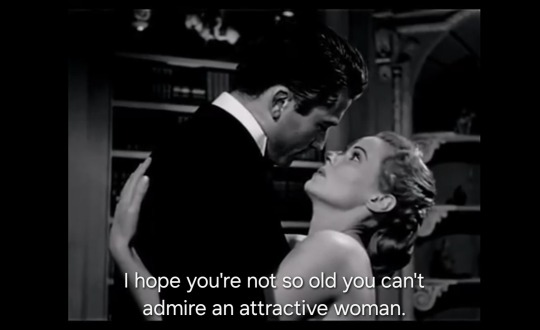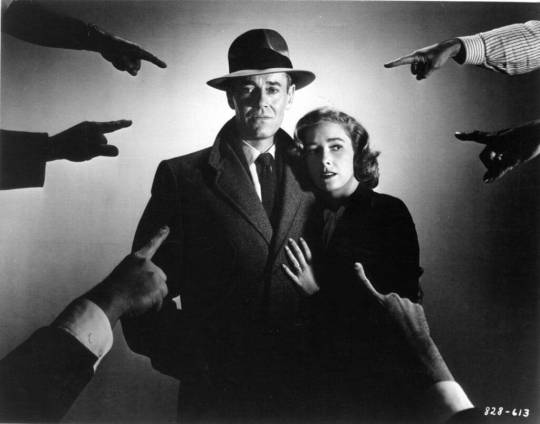Love classic cinema, chess, beautiful architect and science. A chemistry student and lecturer.
Don't wanna be here? Send us removal request.
Text
Film Review: Pawn Sacrifice

The film "Pawn Sacrifice" (2014) is a biographical drama about the life of former chess world champion Bobby Fischer, particularly his historic 1972 championship match against Boris Spassky of the Soviet Union.
The movie is engaging due to its screenplay, captivating storyline, and impressive acting. However, if you're like chess, the film becomes even more thrilling and on par with your taste as chess terminologies such as Sicilian Defense or the Nimzo-Indian Defense have been used in this movie very often.The plot revolves around the Cold War era of the 1960s and 1970s, when the United States and the Soviet Union were engaged in a proxy war on every front. The problem was that, at least in chess, the Soviets were a dominant force (chess has been incredibly popular in Russia since ancient times, and the country has produced some of the greatest chess players of all time).
In this backdrop, a young American chess player, Bobby Fischer, emerges as a challenger. He has already won the national championship at a young age and defeated Soviet grandmasters like Petrosian and Korchnoi, shattering the myth that Americans couldn't beat Russians in chess.
The film begins with Fischer's childhood, where his sister Joan gifts him a chessboard, sparking his passion. However, his intense practice sessions take a toll on his mental health, leading to delusions such as the world's problems are orchestrated by Israel and the Jews, or that he is being spied upon by his rivals.The climax of the film revolves around the 24-game match between Fischer and Spassky for the world championship title. This match is a symbol of the Cold War, with nationalist sentiments running high. President Nixon watches the match on a big screen in his office, while the entire nation is glued to their television sets.
The film's portrayal of these matches is thrilling, especially when Fischer makes a stunning comeback after initially trailing 2-0. Incidentally, Fischer had threatened to boycott the match due to a dispute over the prize money, despite being the hope of an entire nation. The depiction of craze of this World Chess Championship match and the emotions of the masses is very realistic. Fischer ultimately wins the title 12.5-8.5, sparking jubilation across America.
The sixth game of this series is considered one of the greatest games in chess history, and the film's depiction of it is mesmerizing, one can feel the thrill of the game as if it is the live game going on in front of us. Here, Spassky rises from his seat to applaud Fischer's brilliant play, putting rivalry aside to appreciate exceptional skill. This is the film's most captivating moment.All in all, it is wonderful movie for everyone to watch, but to chess-lovers it is highly recommended.
#cinema#cinephile#film review#chess#bobby fischer#Spassky#championship#edward zwick#tobey maguire#lily rabe
1 note
·
View note
Photo


Marilyn Monroe at the Beverly Hills Hotel, California, July 1958.
2K notes
·
View notes
Text
Film Review: La Vérité (1960)

La Vérité (1960), directed by Henri-Georges Clouzot, is a masterpiece of French cinema that delves into the complexities of human nature. This gripping courtroom drama follows Dominique Marceau, a beautiful and independent woman played by Brigitte Bardot, who is on trial for shooting her boyfriend.
Through a non-linear narrative, Clouzot skillfully weaves together the events leading up to the crime, revealing the intricacies of Dominique's character and the societal pressures that shape her actions.As the film unfolds, it becomes clear that Dominique's unconventional conduct and routine often lead to misunderstandings and judgment from those around her. Her sister's boyfriend, in particular, becomes infatuated with Dominique. Clouzot's direction masterfully exposes the layers of truth, One of the film's most striking aspects is its exploration of the ambiguity of truth. Can we ever truly know another's intentions? Clouzot poses this question through Dominique's story, demonstrating how societal expectations and individual biases can distort our understanding of reality.
The film's use of flashbacks and multiple perspectives adds to this sense of ambiguity, creating a rich and nuanced portrait of human complexity.Brigitte Bardot's iconic performance brings depth and nuance to Dominique's character, capturing the essence of a woman misunderstood by those around her.
Brigitte Bardot's performance earned her the Best Actress award at the 1960 Cannes Film Festival, solidifying her status as a cinematic icon.Today, La Vérité remains a thought-provoking and visually stunning film that continues to captivate audiences with its philosophical themes and thrilling courtroom drama.
#cinephile#cinema#classic film#film review#film#movie review#french#french cinema#courtroom drama#romance#brigitte bardot#a classic
12 notes
·
View notes
Text
Film: Kidnapping, Caucasian Style (1967)

"Kidnapping, Caucasian Style," directed by Leonid Gaidai and released in 1967, is a delightful blend of comedy film. The film features the captivating performance of Natalia Varley, whose mix of wit and innocent charm truly steals the show.
This classic showcases the versatility of Soviet cinema, offering a playful approch to humor that keeps the audience engaged throughout. The story unfolds against the stunning landscapes of the Caucasian region, with cinematography that beautifully captures the area's natural beauty, adding depth to the narrative.
With its brisk pace, the film maintains a lighthearted flow, making it an enjoyable watch without overstaying its welcome. Overall, "Kidnapping Caucasian Style" is a charming romp that balances laughter with a picturesque backdrop, solidifying its status as a beloved classic in Soviet film history.
#cinephile#cinema#classic film#film review#movie review#russian#soviet cinema#comedy#humour#Cinema#film#comedy movies
2 notes
·
View notes
Text

Movie: The Paradine Case (1947)
Director: Alfred Hitchcock
Starring: Gregory Peck, Ann Todd, Alida Valli, Charles Laughton
5 notes
·
View notes
Text
Film Review: The Wrong Man (1956)

The film opens with director Alfred Hitchcock appearing on screen, asserting that every word of this film is true. However, what truly stands out is the lead actors' performance, where their eyes convey emotions more profoundly than their dialogues. Another captivating aspect is the chemistry between the wife and husband, showcasing their love, resilience in adversity, family values, and unwavering faith on God. One of the advantages of being a believer is that even in hopeless situations, a glimmer of hope remains, preventing individuals from crumbling.
Emmanuel Balestrero, a musician, is an honest and devoted husband and father. One day, police arrest him for bank and store robberies, which is, of course, a misunderstanding. However, complications arise when witnesses identify him as the culprit, and his handwriting matches the real perpetrator's. Imagine an innocent person entangled in this chaos without a chance to explain their absence to their family – the protagonist's panic is perfectly portrayed. Meanwhile, his wife's concern and desperation are palpable and very natural. When the family discovers the truth, the wife's resourcefulness in finding a top lawyer through telephone directories and pleading for help is heart-wrenchingly realistic.
The lawyer mitigates the situation, and relatives arrange bail. Upon his return to home, his wife displays love and support in the most beautiful way possible, bolstering his spirits – another poignant moment in the film. As I said, this film excels in portraying intense emotions between the loving couple during adversity, surpassing its narrative. This masterpiece detoxes viewers from overacting, senseless shrieks, and childish dialogues found in some of today's films.
7 notes
·
View notes
Text
Movie Review: Moscow Does not Believe in Tears (1980)

Recently, I had the opportunity to watch this beautiful Soviet drama film, a cinematic masterpiece in the Russian language exceptionally directed by Vladimir Menshov. It's an exquisite blend of romance, humor, deep emotions, and excellent dialogue. The film explores love, separation, struggle, and unexpected happiness through the eyes of three friends living in Soviet-era Moscow.
Katеrinа, Lyudmila, and Antonina work in a factory and share a female hostel room. Antonina is already dating a young man, Lyudmila is overly ambitious, and Katеrina is preparing for university entrance exams in chemistry while working. The three girls are struggling youth. One day, Lyudmila convinces Katеrina to try unconventional methods to find a match among the city's elite young men. This leads to unexpected turns. Both find partners, but Katеrina's partner abandons her during pregnancy. The subsequent scenes are intensely emotional, heart-wrenching, and powerfully acted. The actress brilliantly portrays Katеrina's dignified personality.
Among many memorable scenes, the most touching (in my opinion) is when Katеrina, sitting at her study table in the hostel, crying hopelessly after her child's birth, doesn't lose sight of her goals. She changes her alarm time from 6 am to 5:30 am (because she should not believe in tears). This concludes the first half; the second half begins 20 years later, with Katеrina as a single mother and CEO of a prestigious company. There's more to the film, but you should watch it yourself.
The famous quote by poet Shelley, "If winter comes, can spring be far behind?" is the film's core message. Katerina firmly says, "Whatever happens is for the better." The title suggests that hopelessness is not the way. This film is available with English subtitles on YouTube. Its exceptional cinematography, powerful performances, beautiful storytelling, and intense emotional portrayal make it a must-watch. Viewing this lovely film is a memorable and charming experience.
#soviet cinema#russian cinema#cinema#film review#cinephile#movie review#movie lover#movie recommendation#classic
3 notes
·
View notes
Text
Film Review: Spellbound (1945)

This is a psychological thriller movie released in 1945, starring Gregory Peck and Ingrid Bergman in lead roles. Bergman plays the role of Dr. Peterson, while Gregory Peck plays her patient. Both have acted brilliantly, adapting perfectly to the intense emotions and requirements of the story.
Dr. Constance Peterson works as a psychiatrist in a clinic where the renowned Dr. Edwardes arrives to supersede the current head of the hospital. The beautiful Constance falls in love with him immediately. However, it soon turns out that the man is not the real Dr. Edwardes but his imposter, who also suffers from amnesia and memory loss. It is highly likely that the real Dr. Edwardes might have been killed by this imposter. He even confesses to the crime in front of Constance.
Now, the sensible thing to do would be for Constance to keep her distance from a potential criminal, but instead, she decides to follow her heart. The lover now becomes his doctor. Whenever this imposter claims to have killed Edwardes, she repudiates the idea and insists that he is innocent, suggesting that it is his guilt complex that makes him think otherwise. But is she right? Or is she blinded by love? No one in this world is more resourceful than a lady in love.
Constance embarks on an adventurous journey to uncover the truth and cure her beloved patient. The movie is intriguing and gripping, with exceptional performances from the lead actors that will keep you glued to the screen once you start watching.
Since it is a very old movie, it is available for download on Archive, a trusted and prestigious website.
4 notes
·
View notes
Text






One of the clearest sharpest images of our moon ever taken! 5000 megapixels
2K notes
·
View notes
Text

A full moon night.
13 notes
·
View notes

